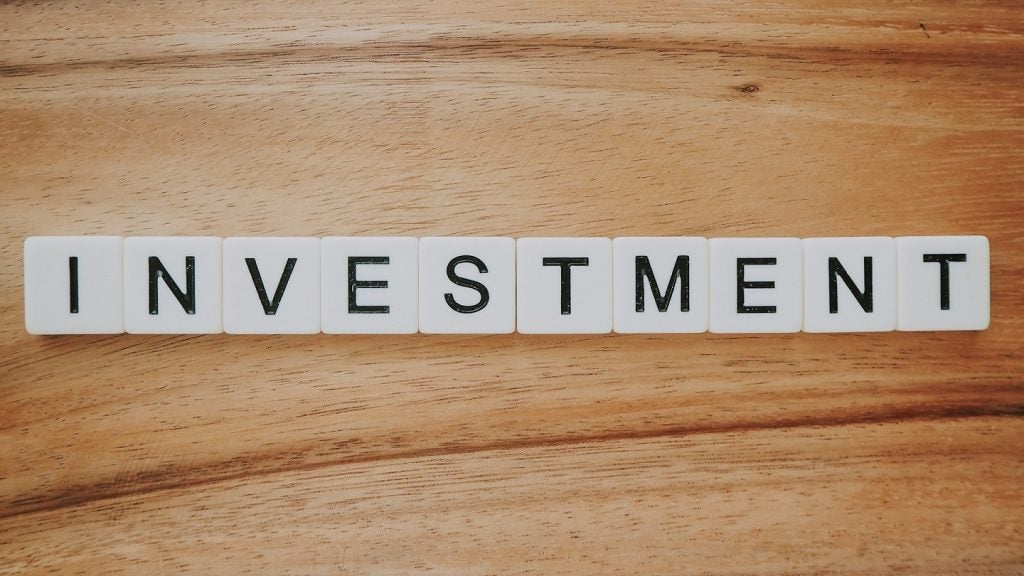While most European economies are still reeling from Covid-19, the local leasing market in Romania, buoyed by national and EU support schemes for SMEs, is showing signs of recovery. Che Golden reports.
Romania, a central and eastern European nation with more than 100 regulated leasing companies to its name, is predicted to grow its GDP by 5.1 per cent in 2021 and by 4.9 per cent in 2022, according to the EU’s spring 2021 economic forecast.
“Except for car leasing companies and car manufacturers captives, equipment specialisation is rather low in the Romanian leasing industry,” says Adrian Oprica, country manager of BNP Paribas Leasing Solutions, Romania.
“The largest leasing players are entities that belong to large universal banks, which have a client focus rather than an asset focus.
“Leasing companies account for 5% of total lending to households and 18% of total lending to companies.
“Credit risk has constantly reduced since the 2007 financial crisis and, as of March 2020, the ratio of corporate loans stood at 2.69% with more than 90 days in arrears,” says Oprica.
How well do you really know your competitors?
Access the most comprehensive Company Profiles on the market, powered by GlobalData. Save hours of research. Gain competitive edge.

Thank you!
Your download email will arrive shortly
Not ready to buy yet? Download a free sample
We are confident about the unique quality of our Company Profiles. However, we want you to make the most beneficial decision for your business, so we offer a free sample that you can download by submitting the below form
By GlobalDataOver the medium and long term, the Romanian leasing market is expected to keep growing on the back of rising demand for equipment in sectors such as manufacturing, agriculture, public works, transportation and healthcare.
 Adrian Oprica, Country Manager, BNP Paribas LS, Romania
Adrian Oprica, Country Manager, BNP Paribas LS, Romania
Meanwhile, in the short term, temporary corrections may occur depending on how fast the sectors that were most affected by the Covid-19 pandemic will recover.
“Agriculture is a good example of this,” says Oprica. “Besides Coronavirus, another major development in 2020 was the severe drought that affected the agribusiness sector. As a result, demand for farming equipment decreased by 40% year on year. That is relevant because farming equipment is mainly funded by leasing companies.”
On the positive side, the Romanian government launched a support scheme by providing state guarantees to SMEs for purchasing equipment through leasing, which has been welcomed by Bob De Man, chief executive of Raiffeisen Leasing in Romania.
“In 2020, the leasing market was focused mainly on helping clients to overcome this event,” he says.
A moratorium was approved in June, created under the auspices of the European Banking Authority (EBA), for customers affected by the Covid-19 pandemic.
“Any customer affected by the Covid-19 crisis could request the postponement of payment instalments, without being considered with late payments for the entire postponement period,” he explains.
Another important success was the inclusion of the leasing industry in Romania’s National Investment and Economic Recovery Plan, approved last summer. The SME Leasing Program for Equipment and Machinery is part of a set of measures included in the government national recovery plan, published in July 2020.
SME Leasing is designed as a multi-year facility to provide guarantees for finance lease agreements.
Under the Government Emergency Ordinance (GEO) 118/2020, the Ministry of Public Finance may grant state guarantees for lease agreements for the purchase of new or second-hand goods, such as IT and communication equipment and technology, machinery or technical equipment, or vehicles destined for the transport of goods and persons, used for commercial purposes.
Such guarantees may cover a maximum of 80% of the financing amount for financial lease agreements for the acquisition of IT&C equipment technology, and a maximum of 60% of the financing amount for financial lease agreements for the purchase of technological machinery and equipment or vehicles for the transport of goods and persons used for commercial purposes.
The state guarantee does not cover interest, commissions and other expenses related to secured financing. For these, the beneficiaries can access the ‘de minimis’ aid scheme, for smaller amounts of funding, in the form of subsidies of 50% for interest and up to 100% for fees.
A beneficiary may receive several state guarantees for multiple finance facilities, on the condition that the maximum aggregate value of these amounts does not exceed 5 million Lei per beneficiary.
All of this is welcomed by De Man, not just as a means of helping business recover from Covid, but in helping to create a healthier SME sector for the country.
“The leasing industry had an active role and a constant and sustained dialogue with the Romanian authorities to structure a financing product as efficient as possible to support the SME sector, which is in great need of modernisation and development,” says De Man.
 Bob De Man, CEO, Raiffeisen Leasing, Romania
Bob De Man, CEO, Raiffeisen Leasing, Romania
Motor finance
The Romanian car market took a direct hit from Covid in 2020. The year started well but car manufacturers and dealers saw their business suddenly decrease following the pandemic, followed by a period of modest recovery.
“The market for new cars decreased by 22% in 2020, while the market of second-hand cars decreased less, by 9% compared to last year,” says De Man.
“As the leasing market is closely related with the evolution of the car market and the economy as a whole, of course, there was an impact in leasing, but a slightly more moderate one than we initially expected, he says.
However, some sectors found themselves unaffected by Covid, while political and economic decisions have led to an uptick in business despite the pandemic.
Medical equipment
“Demand for medical equipment (CT, MRI, linear accelerators and ultrasound) is growing due to an increase in demand for quality imagistic exams driven by low or absent capacity and low service quality in the state-run public hospitals as well as recent reform to the National Health Insurance House, allowing for the reimbursement of exams in private clinics,” says Oprika.
“There has also been a rise in the purchasing power and growing awareness for preventive care. Another market with great potential is that of energy transition equipment such as electric vehicles charging stations and photovoltaic technology,” he says.
Like many businesses, leasing companies have had to adapt quickly in the pandemic to ensure they kept meeting customer needs and to keep themselves relevant. At Raiffeisen, that meant going digital.
“We moved very quickly and precisely,” says De Man. “We made the shift from crowded offices to working from home quickly, we reconfigured the way we interacted with partners and clients and moved everything to the digital space and developed measures for helping clients affected by the pandemic.”
At Raiffeisen, this meant that individuals, or legal entity clients, with ongoing leasing contracts, whose incomes were directly or indirectly affected by the Covid-19 pandemic, benefitted from the facility to suspend the payment of instalments, according to GEO 37/2020 for a period of up to nine months.
“We also have a simplified process to change new contractual conditions for clients who requested support and we used the electronic signature to sign the documents,” says De Man.
Electronic signatures have been available since 2019 and allow for the generation of a qualified electronic signature that has the equivalent legal effect of a holographic signature, says De Man.
“The procedure is performed entirely online, without paper, on a secure and certified platform and takes about two minutes,” he says.
According to Oprica, the Romanian leasing industry has been very flexible with customers who found themselves struggling to make payments.
“The main impact of the Covid-19 pandemic was the payment moratoria, both legislative and non-legislative. Generally speaking, leasing companies remained supportive of their customers and granted payment holidays upon request.”
Oprica observed that another effect of Coronavirus was that some lenders decided to enter markets that were less affected by the pandemic. For example, in 2020 the agriculture market saw an unusual number of new entrants as the business was not significantly affected by the health crisis, although it was affected by drought.
Know your customer
Moving quickly to make administrational changes and keeping an open dialogue with clients has been key for BNP Paribas.
“We sought to reinforce dialogue with our partners and customers about how to overcome the constraints of social distancing,” recalls Oprica.
“To support our SME customer base, we re-organised ourselves and were able to manage the Covid-19 wave of moratoria requests in a reasonable amount of time. We remain confident in our ability to support Romanian SMEs, thanks to the adaptability and the flexibility of our people.”
Although the 2021 economic forecast for the Romanian economy is positive, Oprica remains cautious.
The Romanian economy is projected to grow at around 4.3% in 2021, in the short term, but visibility remains low. 2021 performance will depend on the success of the Covid-19 vaccine rollout and the government policy response to the crisis as well as on EU support,” he says.
Romania is expected to receive €79.9bn from the EU by 2027 under the
Multiannual Financial Framework 2021–2027 (€49.5bn) and the economic recovery plan (€30.4bn), Oprica adds.
Economic activity enjoyed a particularly fast recovery in Q4 of 2020 – the pace exceeded the forecast and lagged only slightly behind that seen in Q3 – with the annual GDP decline slowing to -1.4 % from -5.6 % in Q3, given the 4.8 % quarterly increase after the 5.6 % pick-up in the previous quarter, according to the National Bank of Romania.
The bank estimates that this makes it likely for the aggregate demand deficit to shrink way above expectations at end-2020, which implies a substantial change in the short and medium-term outlook for the cyclical position of the economy.
At the same time, the economic contraction in 2020 came in at only -3.9 % and excluding the effect of agriculture – due to unfavourable weather conditions – it would have been -3.3 %, among the lowest values in Europe.
According to the Bank’s figures, the upturn is owed entirely to domestic demand. Alongside the change in inventories, gross fixed capital formation also played an important part in boosting domestic absorption.
Specifically, capital investment gained strong momentum in annual terms amid the markedly faster growth in new construction works, with the contribution from public investment and government programmes.
At the same time, the negative annual dynamics of private consumption increased only marginally, as the impact of the renewed contraction in households’ purchases was almost entirely countered by a rise in other sub-components, after their considerable decline in Q3.
Regardless of what the final growth figures will be for 2021, De Man expects to see demand improve for investment in Romania with the leasing industry playing a key.
“The leasing industry will continue to support the existing need for financing in the Romanian economy,” he said.
“There is a great need for investment in the economy and we have all the necessary resources to play an important role in supporting the recovery and reconstruction of the economy.
“Also, the current context has shown us that the actions on the customer care and customer service segment, supported by a strong digital strategy, represent the winning formula for serving existing customers and for attracting new customers properly and effectively,” De Man says.
EIB, EIF and Deutsche Leasing
In February 2021, the European Investment Bank (EIB), the long-term lending institution of the European Union, unveiled its first cooperation with Deutsche Leasing Romania in a bid to help Romanian companies active in sectors affected by Covid-19.
The new cooperation between the EIB, European Investment Fund (EIF) and Deutsche Leasing Romania will enable local companies across Romania to benefit from €370m of additional leasing finance. The EIB Group support is backed by a guarantee from the European Fund for Strategic Investment (EFSI).







